Filter by
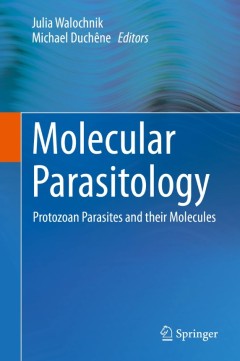
Molecular Parasitology
In the past years, genome projects for numerous human parasites have been completed and now allow first in depth comparisons and evolutionary conclusions. The genomes of parasites reflect the coevolution with their host, metabolic capacities depending on their respective habitat in the host. Gut parasites usually have an anaerobic metabolism, while blood parasites have an aerobic metabolism, in…
- Edition
- 1
- ISBN/ISSN
- 978-3-7091-1415-5
- Collation
- IX, 547
- Series Title
- -
- Call Number
- -
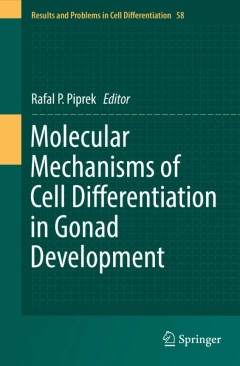
Molecular Mechanisms of Cell Differentiation in Gonad Development
This book presents the current state of knowledge on the origin and differentiation of cell lines involved in the development of the vertebrate male and female gonads with particular emphasis on the mouse. It also discusses the processes leading to the testis- and ovary-specific structures and functions. The individual chapters review the origin and differentiation of the somatic cells of th…
- Edition
- 1
- ISBN/ISSN
- 978-3-319-31971-1
- Collation
- XII, 434
- Series Title
- Results and Problems in Cell Differentiation
- Call Number
- -
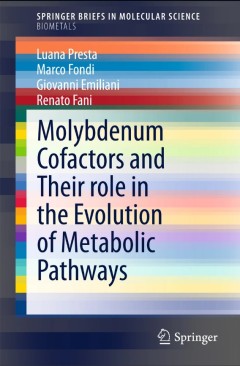
Molybdenum Cofactors and Their role in the Evolution of Metabolic Pathways
In this brief, the authors explore and review the current knowledge regarding the role of molybdenum in the evolution of biological systems and their interaction with biogeochemical cycles. Special emphasis is placed on biological nitrogen fixation and the nitrogen element cycle. The origin and evolution of molybdenum cofactor biosynthetic pathways as well as the evolutionary significance of…
- Edition
- 1
- ISBN/ISSN
- 978-94-017-9971-3
- Collation
- VI, 75
- Series Title
- SpringerBriefs in Molecular Science
- Call Number
- -

The Smoothened Receptor in Cancer and Regenerative Medicine
Medicinal chemistry is both science and art. The science of medicinal chemistry offers mankind one of its best hopes for improving the quality of life. The art of medicinal chemistry continues to challenge its practitioners with the need for both intuition and experience to discover new drugs. Hence sharing the experience of drug research is uniquely beneficial to the field of medicinal chemist…
- Edition
- -
- ISBN/ISSN
- 978-3-319-19755-5
- Collation
- -
- Series Title
- -
- Call Number
- -
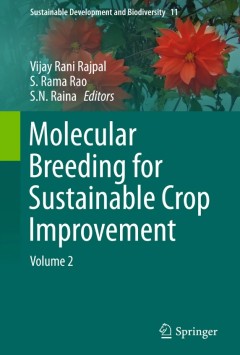
Molecular Breeding for Sustainable Crop Improvement
The world population is estimated to reach to more than 10 billion by the year 2050. These projections pose a challenging situation for the agricultural scientists to increase crops productivity to meet the growing food demands. The unavailability and/or inaccessibility to appropriate gene pools with desired traits required to carry out genetic improvement of various crop species make th…
- Edition
- 1
- ISBN/ISSN
- 978-3-319-27088-3
- Collation
- XI, 478
- Series Title
- Sustainable Development and Biodiversity
- Call Number
- -
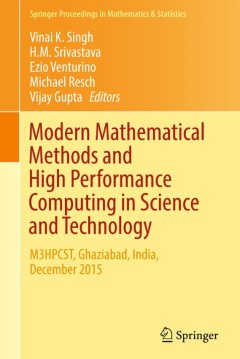
Modern Mathematical Methods and High Performance Computing in Science and Tec…
The book discusses important results in modern mathematical models and high performance computing, such as applied operations research, simulation of operations, statistical modeling and applications, invisibility regions and regular meta-materials, unmanned vehicles, modern radar techniques/SAR imaging, satellite remote sensing, coding, and robotic systems. Furthermore, it is valuable as a ref…
- Edition
- 1
- ISBN/ISSN
- 978-981-10-1453-6
- Collation
- XXI, 309
- Series Title
- Springer Proceedings in Mathematics & Statistics
- Call Number
- -

The Serpin Family
The book provides an comprehensive overview on biology, genetics and cellular functions of serpins (serine protease inhibitors) in health and disease. With over 1000 members serpins are the most diverse family of protease inhibitors. Latest groundbreaking research findings are presented and broaden the understanding on inhibitory and non-inhibitory serpins, not only in mammalian organisms but a…
- Edition
- -
- ISBN/ISSN
- 978-3-319-22711-5
- Collation
- -
- Series Title
- -
- Call Number
- -
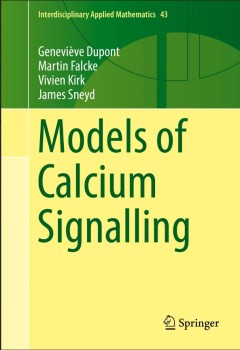
Models of Calcium Signalling
This book discusses the ways in which mathematical, computational, and modelling methods can be used to help understand the dynamics of intracellular calcium. The concentration of free intracellular calcium is vital for controlling a wide range of cellular processes, and is thus of great physiological importance. However, because of the complex ways in which the calcium concentration varies, it…
- Edition
- 1
- ISBN/ISSN
- 978-3-319-29645-6
- Collation
- XXIII, 436
- Series Title
- Interdisciplinary Applied Mathematics
- Call Number
- -

Emerging Bioresources with Nutraceutical and Pharmaceutical Prospects
This book introduces some emerging functional foods that are natural resources with tremendous promise as nutraceuticals and pharmaceuticals. The author considers biodiversity and bioprospecting as a response to food security issues, drug-resistance, nutrition-poor diets and other problems, exploring the prospects of several under-utilized nutrients and bioactive repositories. Readers will d…
- Edition
- 1
- ISBN/ISSN
- 978-3-319-12847-4
- Collation
- 4 b/w illustrations, 14 illustrations in colour
- Series Title
- -
- Call Number
- -

Elucidation of Abiotic Stress Signaling in Plants Functional Genomics Perspe…
Abiotic stresses such as high temperature, low-temperature, drought, and salinity limit crop productivity worldwide. Understanding plant responses to these stresses is essential for rational engineering of crop plants. In Arabidopsis, the signal transduction pathways for abiotic stresses, light, several phytohormones and pathogenesis have been elucidated. A significant portion of plant genomes …
- Edition
- 1
- ISBN/ISSN
- 978-1-4939-2540-7
- Collation
- 1 b/w illustrations, 26 illustrations in colour
- Series Title
- -
- Call Number
- -
 Computer Science, Information & General Works
Computer Science, Information & General Works  Philosophy & Psychology
Philosophy & Psychology  Religion
Religion  Social Sciences
Social Sciences  Language
Language  Pure Science
Pure Science  Applied Sciences
Applied Sciences  Art & Recreation
Art & Recreation  Literature
Literature  History & Geography
History & Geography